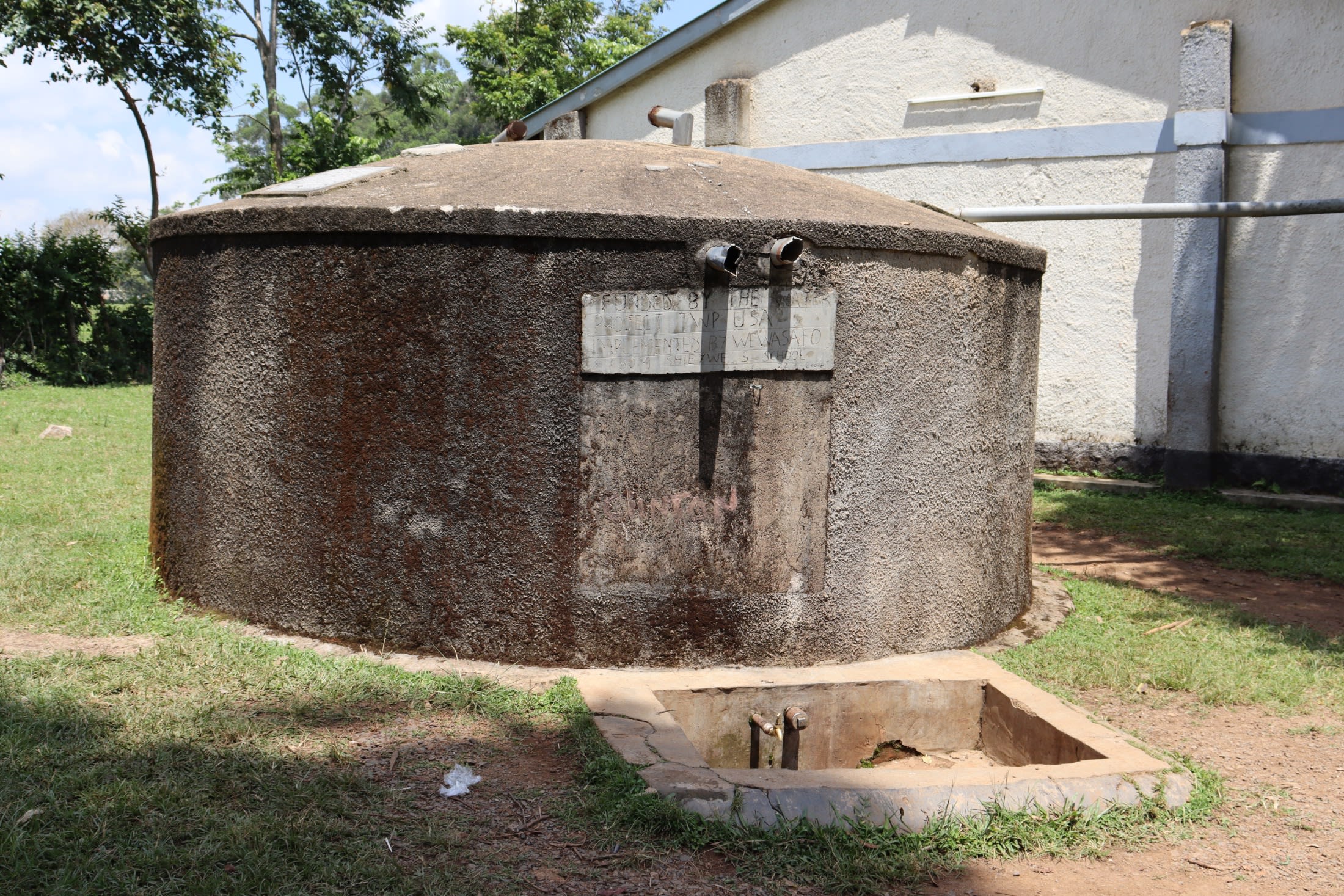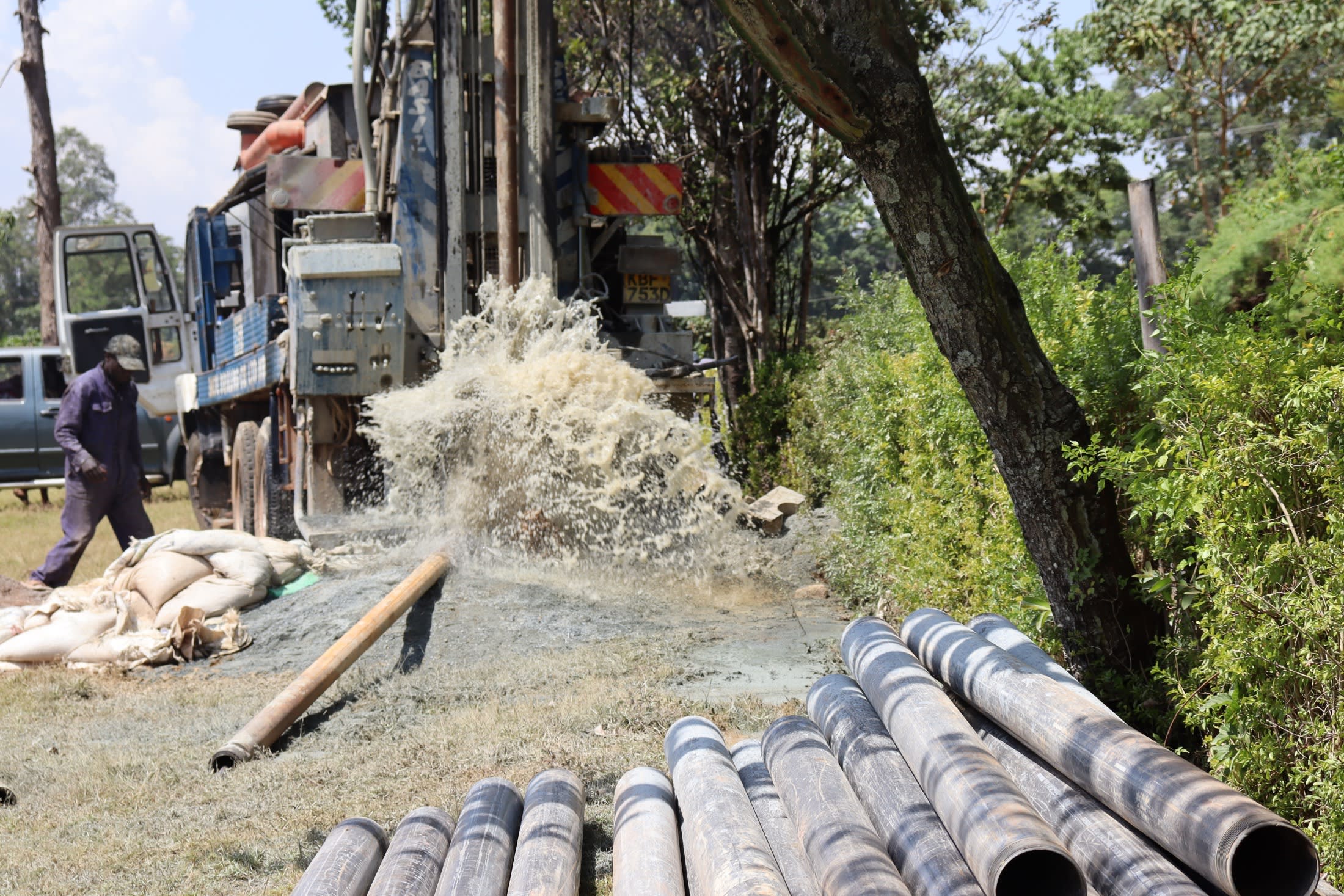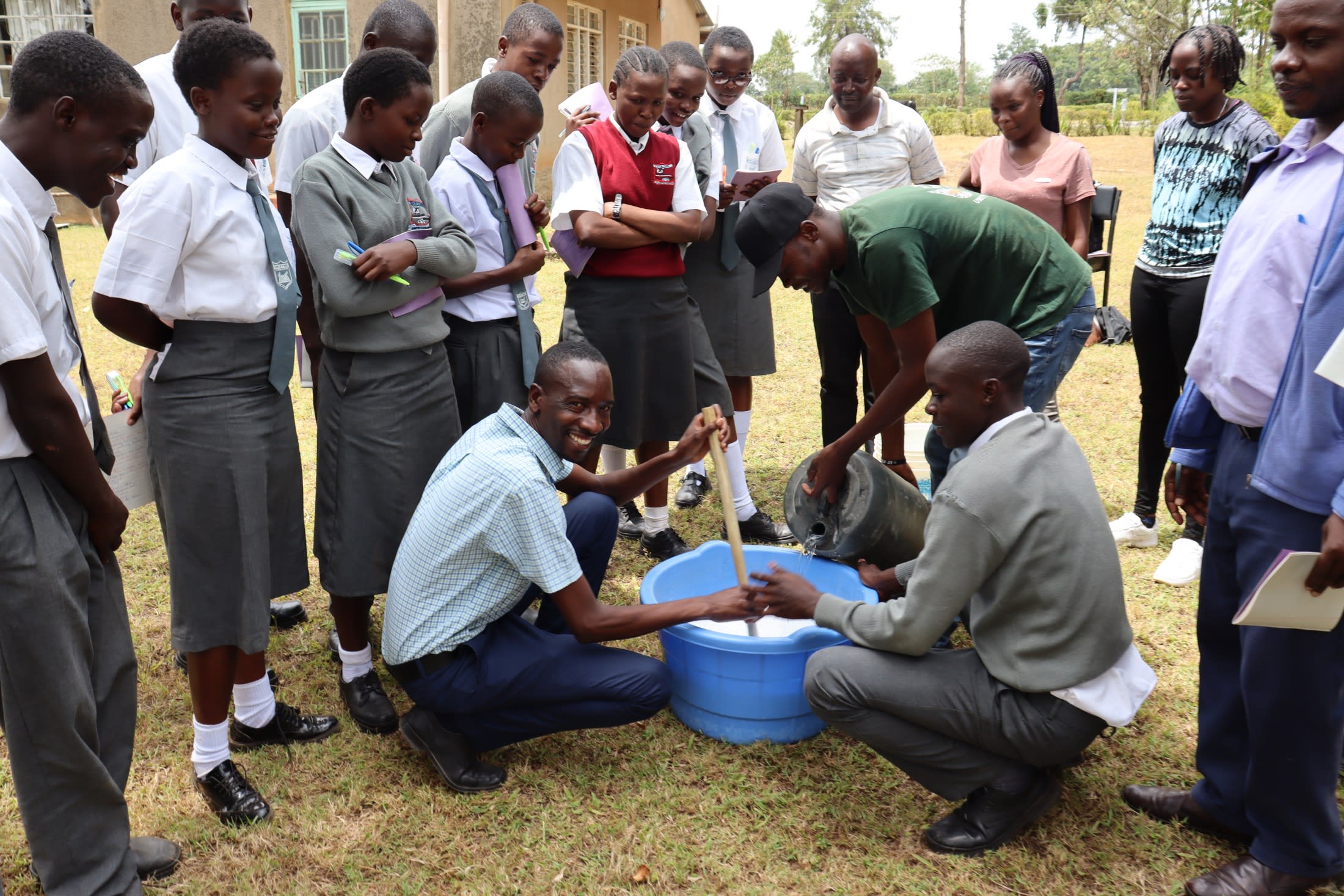The 904 students and 67 teachers at Shieywe Secondary School struggle to collect water to meet their daily water needs. And even though they have access to several water options, the amount they can collect is still insufficient.
The local municipality supplies piped water to the school through a single tap, but the water is often rationed, making it unreliable. But even when the pipe functions at full capacity, it does not provide enough water for the school's needs. Students fight for access to the single pipe, and inevitably, time is wasted waiting in lines, making them miss valuable class time.
"[The] shortage of water in the school has greatly affected sanitation and hygiene standards in the school. Cleaning [the] toilets is not done as it should [be], and this turns to be a health hazard. Generally, as a school, we have not observed hygiene standards to the level we would wish to," said 42-year-old teacher Imboni Mbenedict (shown below).

The school also has a 30,000-liter rainwater tank that was installed several years ago, but since then, the student population has increased. The tank cannot hold enough water for the drinking, cleaning, cooking, and hygiene needs of the entire school population. And with the unpredictable rainy seasons in Kenya over the last several years due to climate change, the school administration never knows how full the tank will be.

When the tank is empty, students are forced to visit a nearby stream to collect water instead, along with a large portion of the community. With all the time spent off the school campus collecting water, the students are missing valuable learning time needed to build brighter futures.

"Programs in any formal learning institution are structured and well timetabled. Each program has time allocated for it, and whenever there is a delay in one program, it affects all the other programs. Delay at the water queue is enough to disrupt all other activities of the day. This makes it difficult to meet daily targets, which eventually affects [my] academic performance," said 17-year-old student Leah J. (shown above).
With a well right on the school campus, hopefully, students will be able to return to class and save their resources of time and energy for learning.
What We Can Do:
New Well
We conducted a hydrogeological survey at this school and the results indicated the water table beneath it is an ideal candidate for a borehole well. Due to a borehole well's unique ability to tap into a safe, year-round water column, it will be poised to serve all of the water needs for this school's large population, even through the dry months.
The school will help collect the needed construction materials such as sand, rocks, and water for mixing cement. They will also provide housing and meals for the work team, in addition to providing local laborers. We will complement their materials by providing an expert team of artisans and drilling professionals, tools, hardware, and the hand-pump. Once finished, water from the well will then be used by the school’s students and staff for drinking, handwashing, cooking, cleaning, and much more.
Handwashing Stations
The student health club will oversee the two new handwashing stations we will provide, and make sure they are kept clean and in working condition. The club leaders will fill the handwashing stations with water daily and make sure they are always supplied with a cleaning agent such as soap or ash.
VIP Latrines
We will construct two triple-door latrine blocks using local materials that the school will help gather. Three doors will serve the girls and three doors will serve the boys. All of these new latrines will have cement floors that are designed to be easy to use and to clean. And with a borehole right on school property, there should be enough water to keep them clean.
Training on Health, Hygiene, COVID-19, and More
We will hold a one-day intensive training session with students, teachers, and parents. This training will cover a wide range of topics including COVID-19 symptoms, transmission routes, and prevention; personal and environmental hygiene; and the operation and maintenance of the borehole, latrines, and handwashing stations. There will be a special emphasis on handwashing.
Our team of facilitators will use a variety of methods to train, including participatory hygiene and sanitation transformation, and asset-based community development. We will initiate a student health club, which will prepare students to lead other pupils into healthy habits at school and at home. We will also lead lectures, group discussions, and provide illustrative handouts to teach health topics and ways to promote good hygiene practices within the school including handwashing and water treatment. We will then conduct a series of follow-up trainings before transitioning to our regularly scheduled support visits throughout the year.
We and the school strongly believe that all of these components will work together to improve standards at this school, which will help lead to better student academic performance and will help unlock the opportunity for these students to live better, healthier lives.





 Borehole Well and Hand Pump
Borehole Well and Hand Pump
 Rehabilitation Project
Rehabilitation Project

































